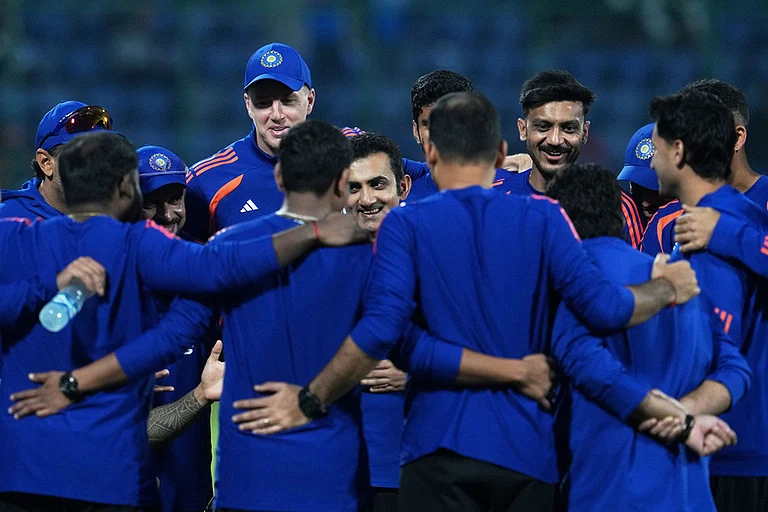The world came crashing down for Amrit Bir Singh, then 21 years old, when his father Raghbir Singh, an inspector with the Central Reserve Police Force (CRPF), was killed in an ambush laid by Maoists in Sukma area of Chhattisgarh in 2017. “The void can’t be filled, but there is some consolation that the government has secured my career by giving me a respectable job,” says Amrit Bir, now 25 and under training as a tehsildar. According to the government officers who interviewed him, besides being the only child of the slain CRPF inspector, he has strong credentials for the job.
Amrit Bir is one of 72 relatives of slain personnel of the armed and paramilitary forces who have been appointed to various posts by the Punjab government since 2017, when Captain Amarinder Singh took over as chief minister. The claims of 11 others are being processed by the state’s department of defence services welfare. The posts include excise and taxation officers, lecturers, tehsildars, naib-tehsildars, assistant registrars and inspectors in the cooperation department, and only those who fulfil the basic qualification norms are appointed. In case the children of the slain personnel are too young for the job, their mother is appointed. According to the new policy cleared by the state cabinet in February, the mother can keep the job for up to 25 years until one of her children is suitably qualified. So far, at least eight women have secured jobs for their children. Two of them lost their husbands during clashes with Chinese forces in the Galwan valley. “This is a good scheme for the children’s future, where they are assured of a job even two decades after their father’s death,” says one of them, who didn’t want to be named.
Ikwinder Kaur, 29, is being trained as a naib-tehsildar. Her soldier-husband, Naik Maninder Singh, was buried under an avalanche in the Siachen glacier in November 2019. “The loss is enormous. However, the Punjab government has dealt with my case in an efficient manner. It came as a big help in our hour of grief,” she says.
“We have brought down the waiting time for getting the job from two years to four or five months,” says Brigadier (retd) Satinder Singh, director of the department of defence services welfare. “Once the certificate of battle casualty is received from the unit of the slain personnel, it takes no time to process the case for jobs to the kin. We call the candidate decided by the family for an interview for a post depending on his or her qualification, oversee the documents and start the process of employment.”
In some cases, the kin may not be eligible for jobs. For instance, a CRPF jawan killed in the Pulwama terrorist attack in February 2019 was the only son of his parents, who were then nominated for a monthly pension of Rs 10,000 by the department. “The chief secretary heads a high-powered committee on honour and gratitude, which meets every three to four months and takes prompt decisions on all the cases that come up during the period,” says Brig Singh.
On the day of the slain personnel’s bhog ceremony, the department gives the family Rs 5 lakh from the Rs 50 lakh compensation offered by the state government. The rest is given after processing the claims. Sometimes the families take time to decide who would take the job. The department also advises them about the person best suited for it—the immediate family gets pension and ex gratia of Rs 1.5 crore (approximately Rs 1 crore from the army and Rs 50 lakh from the state government), so it may be better if another relative applies for the job.
(This appeared in the print edition as "Future Perfect")

























